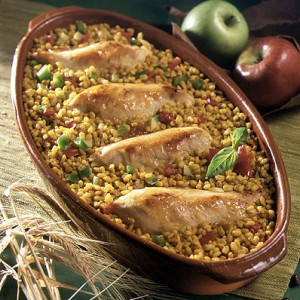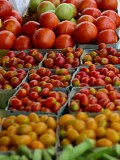
Credit: The National Barley Foods Council
Diabetes is one of today’s most significant and frightening health issues. Almost 24 million Americans have been diagnosed with type 2 diabetes, and up to 57 million are considered pre-diabetic. The good news is, by practicing a few healthy lifestyle habits, type 2 diabetes can be controlled and even reversed.
In observance of American Diabetes Month®, The National Barley Foods Council shares this information: a whole grain, high-fiber diet may help control and even prevent type 2 diabetes and pre-diabetes.
Barley is an excellent whole grain choice because it has a high concentration of dietary fiber, including beta-glucan soluble fiber. Studies have confirmed that beta-glucan soluble fiber is effective in promoting healthy blood sugar, reducing cholesterol, promoting healthy blood pressure and helping control weight, all conditions associated with diabetes.
“Barley has become a rising star as a recommended food choice for those concerned about type 2 diabetes or pre-diabetes,” says Mary Palmer Sullivan, Executive Director, National Barley Foods Council. “The grain contains essential vitamins and minerals and is an excellent source of dietary fiber, particularly beta-glucan soluble fiber.”
Findings from clinical trials reported in Nutrition Research and the Journal of the American College of Nutrition showed that people who ate foods containing barley experienced significant reductions in glucose and insulin responses compared to responses after eating similar products containing whole wheat and corn. Another study published in the Diabetes Research and Clinical Practice Journal reported a 30-percent decrease in HbA1c (average blood glucose level) in people with type 2 diabetes who ate a healthy diet including pearl barley that supplied 18 grams of soluble fiber per day.
Barley is available in whole grain or pearled forms including flakes, kernels, flour and grits. For more information about barley and diabetes, additional health benefits, and tips on how to incorporate the grain into everyday meal plans, visit www.barleyfoods.org.
Source: National Barley Foods Council













